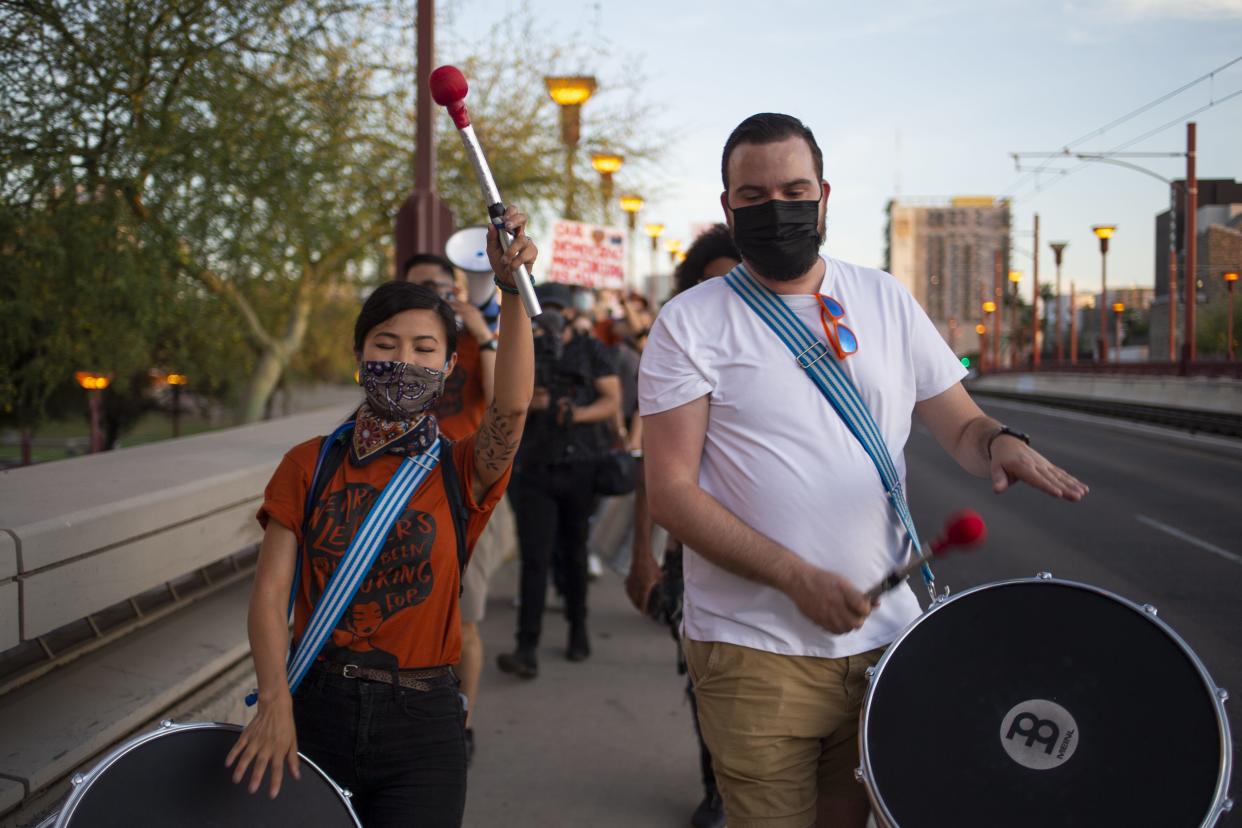Arizona has a deep Asian American and Pacific Islander history. Schools should teach it

We celebrate Arizona’s 110th birthday this month. What do you know about the early settlers in our state? How about our state’s role in the incarceration of Japanese Americans? Do you know the history of Chinese chorizo?
This is deeper than historical trivia. These are milestones, historical traumas and the culinary culture of the Asian American Pacific Islander community in Arizona.
House Bill 2638, legislation to appropriate funds for the creation of Arizona-specific AAPI curriculum, will center the stories of the AAPI community in Arizona and ensure that our history is documented, celebrated and shared in our state's K-12 classrooms.
Sadly, the chairwoman of our House Education Committee failed to put this bill on her committee’s agenda, so HB 2638 died before we the people had a chance to weigh in.
The next agenda setting is on Feb. 15.
Let’s resuscitate HB 2638 and ensure our stories are told.
Those weren't internment camps. They were prisons
On Feb. 19, we mark the 80th anniversary of Executive Order 9066, which authorized our military to force over 120,000 Japanese Americans into 10 prison camps across the United States.
We often speak about the resilience of the Japanese Americans during this time, but we have to acknowledge the extraordinary dehumanization they endured. This starts with re-examining the terminology we use to describe this period.
This was not internment, it was incarceration. Families slept in horse stalls as they were processed. They were numbered, tagged and sent off to live in remote and barren areas, behind barbed wire and guarded by armed soldiers.
These were not relocation centers, they were prison camps. Two of the largest prison camps were here in Poston and Gila River, yet there is no vestige of this heinous breach of American civil liberties.
Shortly after the war, our government quickly sold and relocated all the buildings that housed almost 50,000 Japanese American families for more than three years.
Further complicating matters is that Poston and Gila River were constructed on tribal land that now has restricted access. Currently, many of the prisoners who were children and are now old enough to have memories of that time are approaching their ninth decade of life.
We can't gloss over inconvenient truths
There are so many lessons to be learned from this chapter of history: From examining constitutional law through landmark Supreme Court cases, such as Korematsu v. United States and Hirabayashi v. United States (which dealt with the freedoms stripped from Japanese American citizens), to treating fellow citizens with basic human decency.
We cannot let these lessons die off without memorializing within our discussions of state history.
Arizona’s 5Cs (copper, cattle, cotton, citrus and climate), etched on our state seal, and recited by public school students across the state, lacks true meaning without first acknowledging the Indigenous stewards of this land, and second, recognizing racist federal and state alien land laws that barred Chinese workers from our copper mines, and Chinese and Japanese agricultural workers from owning the land they toiled on.
These are facts, and this is history. We will not be on the right side of history 100% of the time, but that does not mean we marginalize or gloss over inconvenient truths to save face or spare our children from potential shame.
Learning about me doesn't take away from you
Education is not a zero-sum game. We all have to gain from a more diversified curriculum. To learn the full truth of our United States is a pledge of our allegiance. To be able to empathize with people who we do not identify with is an act of compassion, not weakness.
To learn about me, is not to take away from you. Educators promote stories and lessons that serve as mirrors, windows and doors. This builds upon studies that show students of color are more engaged and perform better academically when they see themselves celebrated in their community.
In school districts such as Chandler Unified, almost 12% of the student population is Asian American Pacific Islander yet we are virtually absent in the K-12 curriculum. Our students are sitting in a black box.
The consequences are obvious.
Asian American students are suffering
Non-AAPI students are not taught to value the contributions of a community they do not identify with nor do they contextualize Asian American as being from here, leading to dangerous perpetual foreigner, and model minority myths and stereotypes.
A sadder statistic is more ominous: Asian, Native Hawaiian and other Pacific Islander high school youth have the highest percentages of past-year serious thoughts and suicide plans when compared to other races and ethnicities.
Offering a more diversified curriculum is a starting point to bridge the gap in representation and hopefully diversify the K-12 narrative to include previously unexplored stories.
Such as Chinese chorizo. Which, in case you were wondering, was made by the early Chinese grocers here in Tucson and represents both early fusion food and the solidarity forged between the early Chinese and local Mexican communities.
Such stories help nurture the emerging identities of AAPI students as they explore their own roots in Arizona.
Yvonne So is the outreach and advocacy co-chair of the OCA K-12 AANHPI Curriculum Project. Learn more about the project at ocanational.org/k12. Contact her at k12@ocanational.org.
This article originally appeared on Arizona Republic: Arizona must teach Asian American Pacific Islander history

